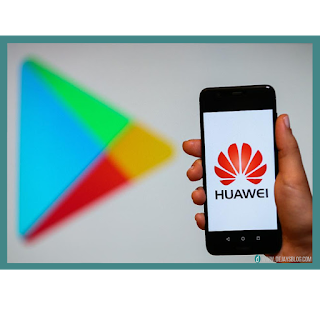
Many people including me believed that Huawei may be able to survive the ban imposed on them by the American government due to the sheer scope of their business. However, things are not looking very good at the moment. The main concern when the ban was imposed was the inability of Huawei to work with Google. Who provides Google services for Android which is crucial for any device outside of China.
Even though that was a huge blow to the Chinese tech giants, we soon learned that they have been planning for this eventuality and have been developing their own in house ecosystem. This not only included an operating system said to be more powerful and more efficient than Android but also HMS(Huawei Mobile Services) which could replace Google services if need be.
The issue concerning the lack of apps seemed to be on its way to becoming non-existent. Huawei is offering monetary incentives to developers to entice them to develop apps for their app store. Huawei was forced to release a flagship without Google services which did not do well outside of China as expected. This was not much of an issue though as the device did extremely well in China making up for the loss abroad.
Things were by no means perfect but they seemed under control or at least manageable, until now. Reports indicate that the US may put pressure on companies like TSMC to stop selling components to Huawei without a license. How important is TSMC to Huawei you might ask? Well, they are a company that is integral to the silicon-based chips that power Huawei devices. And even though Huawei does make their own Kirin Chipset, they still depend on the ARM architecture (or blueprint) provided by TSMC.
TSMC is a Taiwanese company but relies on equipment produced by American companies and therefore will be affected by this if it does come into fruition. This is the single reason why they are more important to Huawei than even Google is. Without Google, Huawei could still make devices and sell them only in China if they have to. Take away TSMC and they lose their ability to make the most basic unit needed for any smartphone in the SOC.
Huawei could use Snapdragon chips in their devices just like Samsung, One-plus and many others do, but the same blockage arises as Qualcomm (makers of the Snapdragon soc) is also an American company and will also have to follow the same rules as TSMC.
Competition is good as it forces companies to spend millions of dollars on research which in turn enriches the lives of we the consumers. Therefore, potentially losing one of the biggest smartphone makers in the world would not be good for anyone involved in the long run. This could mean other Chinese smartphone makers may all have to start looking for alternatives to these American companies as they might not know when it may also happen to them. Huawei is currently the world's second-largest smartphone maker. This could be a huge blow for them and the industry at large if the policy indeed goes through.



